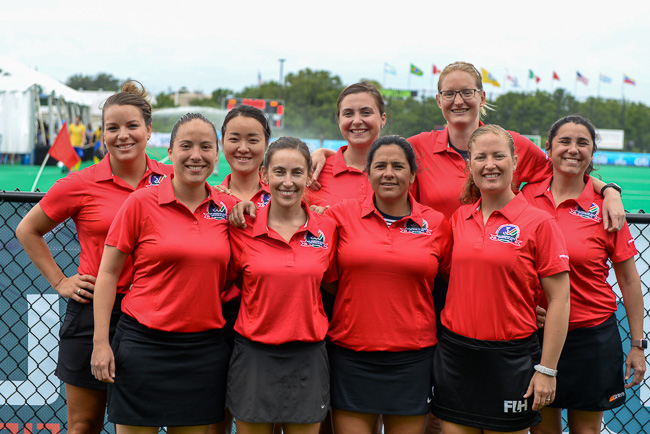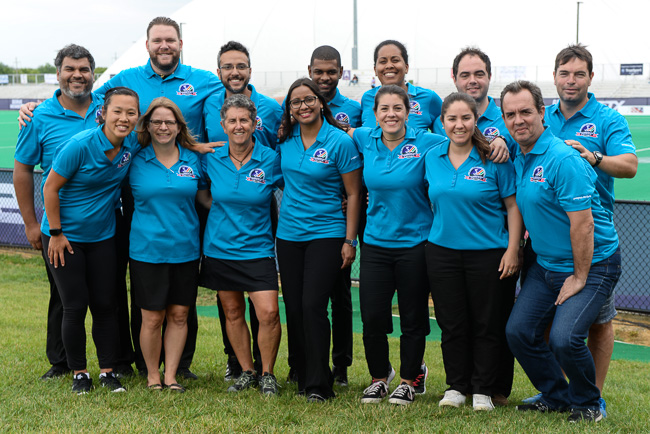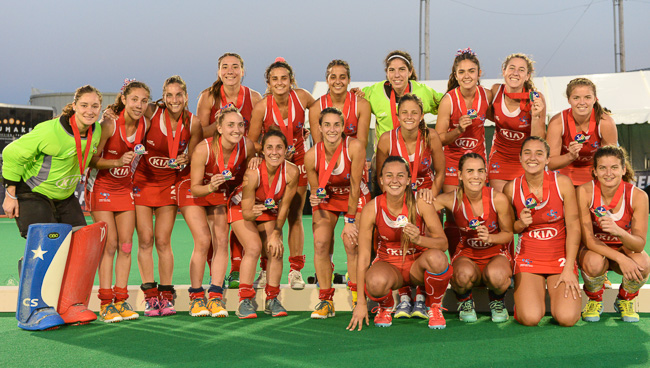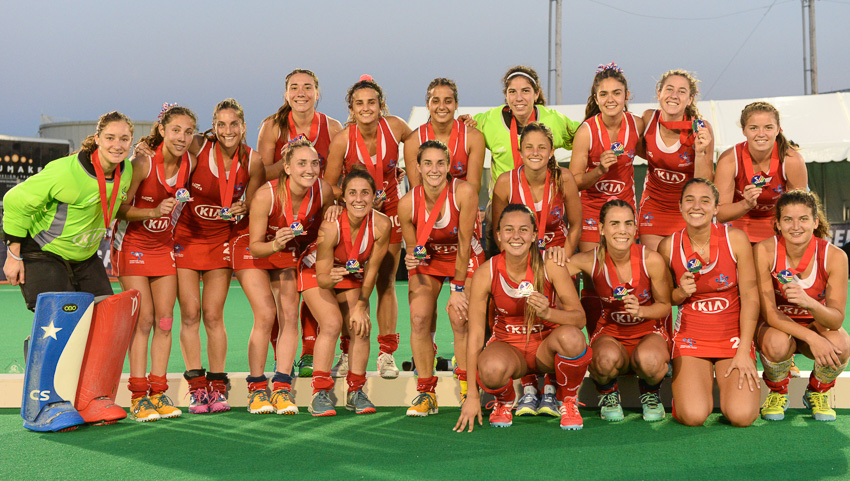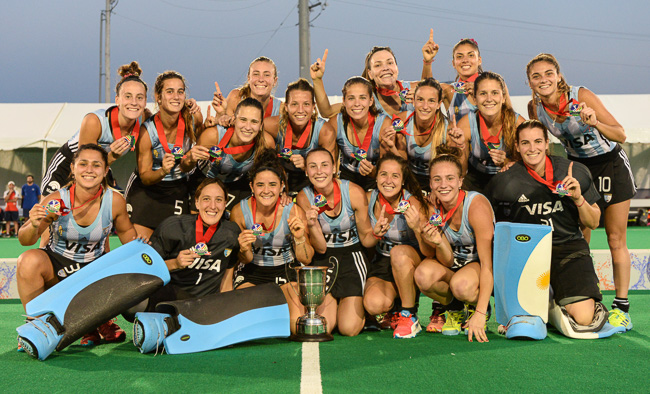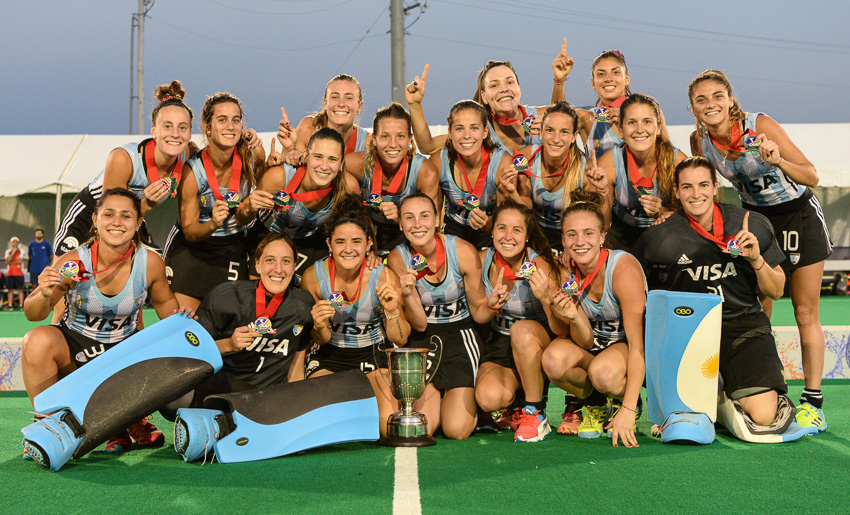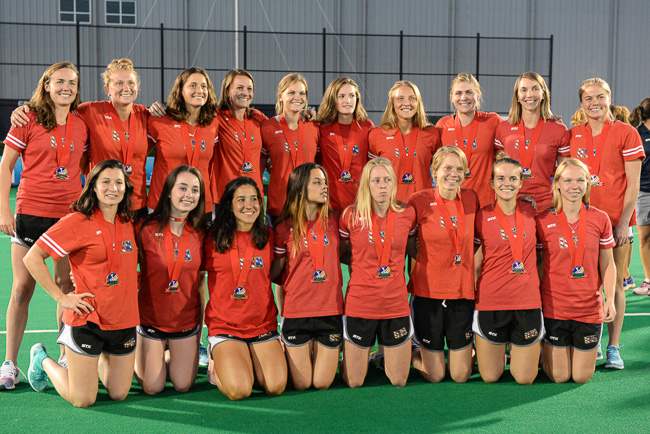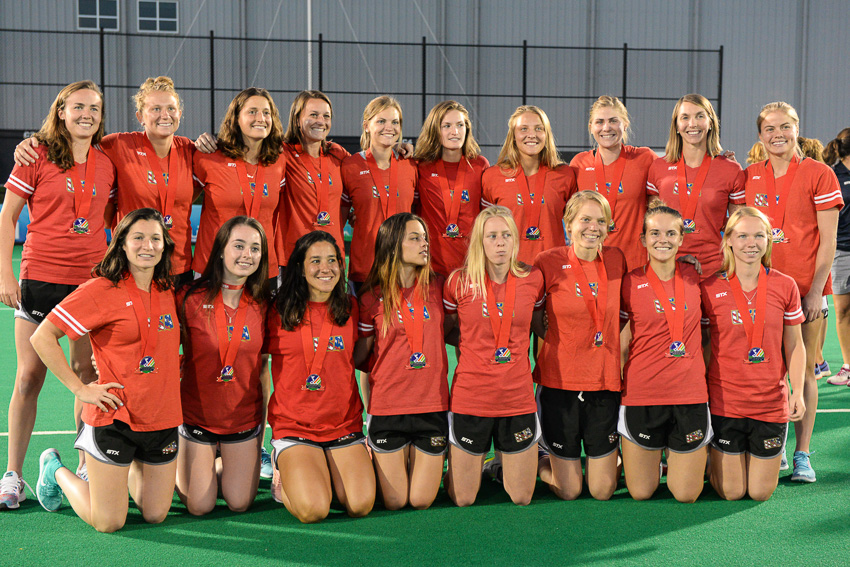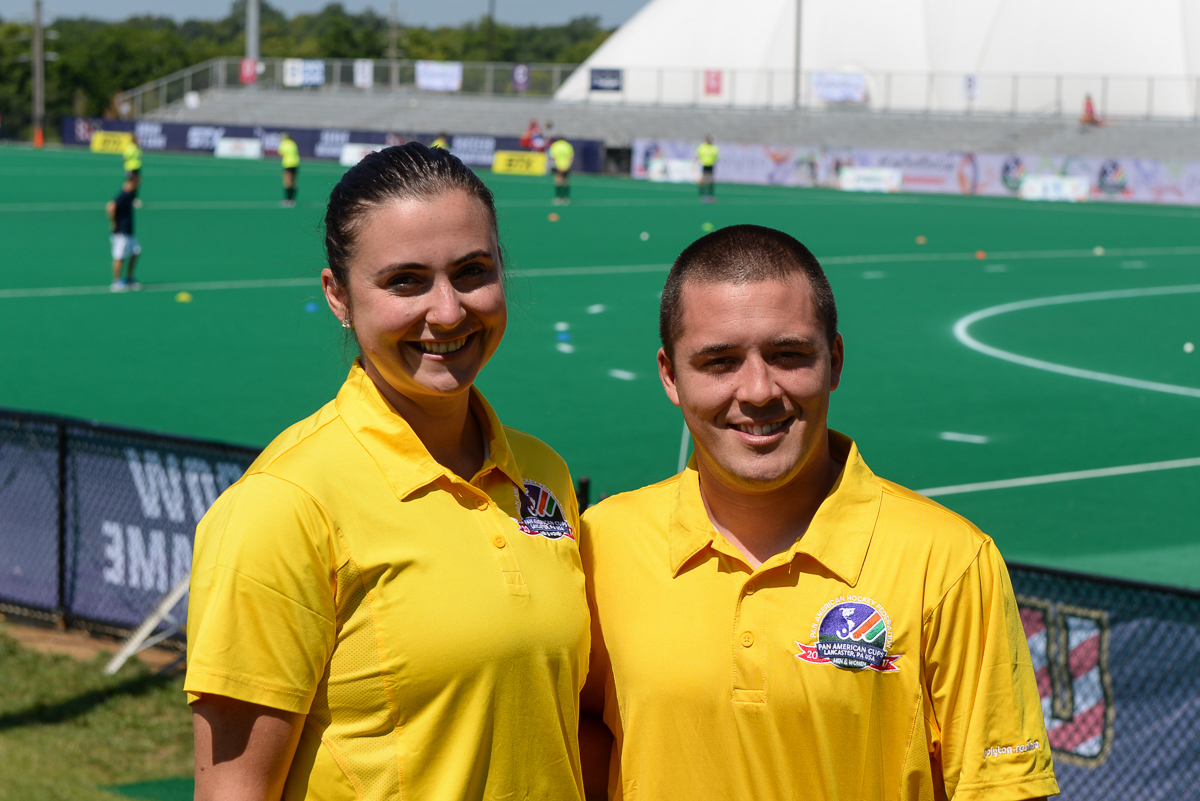
Just as a new era of hockey has evolved with self-start passes, 3D skills, video referrals and new long corners so has the progression of officiating. Now more than ever are the demands for quality, intuitive and fit umpires a necessity of one of the world’s most popular team sports. In Canada officials have clung to their whistles for as long as the game will let them and as the depth of players needs to build from the top down, the same is true for umpires. Emerging from Canada are the talents of Saskatchewan’s Tyler Klenk and British Columbia’s Lelia Sacre, both of whom were appointed to the 2017 Pan American Cups in Lancaster, USA.
Klenk and Sacre are both former high-level players, representing Canada at the Junior level, offering a unique perspective to their umpiring. Klenk and Sacre aspire to have their names ring amonst the prestigious list of Canadian international umpires including the likes of Sumesh Putra, Chris Wilson, Alan Waterman, Wendy Stewart, Janice McClintock and Margaret Lanning.
For Sacre, it was inevitable that hockey would be part of her life as her father, John, was a former national team player and coach, while her mother, Cindy, was a former collegiate player and coach and now umpire.
“Lelia exudes personality and management skills on the pitch and has a talent for turning coaching tips into quick improvements,” said Canadian Alan Waterman, who umpired internationally for 17 years including spending eight years on the FIH World Panel. “She is exactly the mouldable, young umpire the FIH is looking to develop.”
Klenk had high aspirations as a player but as his junior national team career came to an end he decided to pursue umpiring and went on to achieve his international badge at the 2016 Junior Pan American Championships.
“In a word, unflappable,” added Waterman on Klenk. “Tyler has the amazing ability to make each new challenge look like he’s done it a hundred times before. He’s a player’s umpire and it shows with the respect his is given in return, on and off the pitch.”
Klenk relocated from Victoria, where he attended and competed for the University of Victoria, to Vancouver to be closer to top-level hockey in Canada.
“As an umpire, I am constantly working on improving myself, regardless if it’s a local league game, or international match,” said Klenk humbly. “Things such as positioning, whistle tone and timing, and communication are things I am always working on. But most importantly, I am always working on game management and finding different tools to manage the temperature of the game.”
Just as players make sacrifices to compete for their country, so do these young officials if they wish to achieve the ultimate goal of umpiring at an Olympic Games. Sacre chose to move to England where she has the regular opportunity to umpire in the English Premier League.
“In England I work with some of the best umpires and umpire managers but to also umpire some of the best players in the world,” said Sacre. “I have also had to make financial sacrifices. I went to the 2014 World Cup in Holland to watch and talk with the best umpires in the world as part of my personal development. In terms of tournaments I often have cover the majority of my flight and accommodation as well as take unpaid leaves from work.”
It’s not just financial stress that makes it difficult for these young Canadians to pursue their dreams, other life goals often take a backseat ride too.
“I had to extend graduating and getting my university degree by one semester to be able to attend the Junior Pan American Championships,” added Klenk. “I also have a lot of holiday-time sacrificed as most of my vacation time is not spent at the beach or camping but rather at the pitch umpiring as much as I can.”
Make no mistake, these umpires love and are committed to what they do and they have some great footsteps to follow and mentors to support them through that wave.
“Chris Wilson and Denise McGeachy are two people who have influenced my umpiring career to this point,” said Klenk about the two Victoria-based officials. “They have always pushed me to continue to pursue higher-level games and tournaments as I was developing. Also, Alan Waterman and Sumesh Putra take a lot of time out of their weekends to help umpire development and spread their knowledge.”
Sacre also referenced Waterman and Canadian Margaret Johnson as mentors as she achieved her international badge. Sacre’s international experience has also opened the door for support from the UK.
“Liz Pelling, Louise Knipe and Dawn Bonner from the UK have also been important in my development,” adds Sacre. “It is never easy moving to a new country knowing very few people and these three have been so supportive both on and off the pitch.”
Sacre has been in the internatioanl circuit a bit longer than Klenk, having been appointed to the 2013 Pan American Cup in Mendoza, Argentina, as well as the 2016 Hawkes Bay Invitational in New Zealand and the 2017 World League Round 2 event in West Vancouver, Canada. Each event is an opportunity for Sacre to improve.
“I am constantly working on improving myself, regardless if it’s a local league game, or international match,” said Sacre, who is on a very common thread with Klenk. “Things such as positioning, whistle tone and timing, and communication are things I am always working on. But most importantly, I am always working on game management and finding different tools to manage the temperature of the game.”
While opportunities to officiate in Canada are scarce, these two emerging umpires have paved their own way to the international level. As they progress through the ranks to establish themselves through the Pan Americans and later the world level, it would not be unlikely to see them as potentials for the 2020 Tokyo Olympics.
For now, they stick to their regime and attack each tournament game-by-game.
“For international matches I arrive at the pitch two hours before and get my mind in hockey mode and have a good stretch and pre-game chat with my colleague,” said Klenk about his usual match rituals. “I get a really comprehensive warm-up in and I have a good playlist usually with rock music like ACDC or Def Leppard.”
Sacre’s routine is simple and involves getting dressed in the same order with the same music, while her superstition is having a new pair of socks for international matches.
While their international careers appear to be just beginning, both Sacre and Klenk took time to reflect on their most memorable moments early on. Both agree umpiring on Canadian soil was at the top of the list as Klenk had his first international in Toronto, while Sacre umpired at World League Round 2 in West Vancouver.
“They have both played at a high level and this gives them the edge over others,” adds Wendy Stewart, who earned her Golden Whistle of 100 internationals in 2014 and umpired at the 2012 London Olympics. “Their natural ability to connect with the players on and off the field also demonstrates the empathy and respect they have and are prepared to earn it (rather than demand). They have made many sacrifices to climb up the umpiring ranks and to keep ahead of the expectations and demands of modern day hockey. They are willing to take personal responsibility, putting in the hard work, but refreshingly, both remain humble and resourceful students of the game and taking time to give back to their respective hockey communities.”
The evidence of their early success is likely a sign of what is to come, while hopefully their story can be an inspiration and motivation to other aspiring Canadian officials. Everyone starts somewhere but it doesn’t happen without the path set by those before you and the support of those around you.
Klenk was appointed the bronze medal match between USA and Trinidad and Tobago on the final day – the highest appointment possible given Canada was in the final. Sacre umpired a thriller semi-final game between Chile and USA and was then appointed the 5/6th place match between Mexico and Uruguay. Both Canadians had very successful performances at the tournament.
